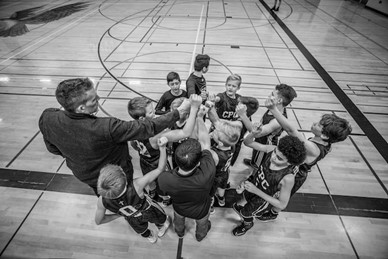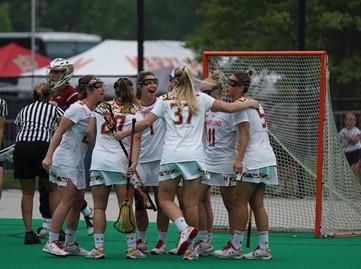
The Basketball Coaches Association of Michigan (BCAM) recently recognized Dr. Ryan Cunningham of Michigan with two certificates of accomplishment as part of BCAM’s “Century Club”.
BCAM Executive Director Dan Young presented former Michigan Superintendent Ryan Cunningham with a certificate for achieving 200+ wins obtained as a head coach and a certificate for achieving 200+ wins obtained as a non-varsity head coach.
“For me, it wasn’t about the wins and losses but the experiences that I have had with the kids,” said Ryan Cunningham of Michigan. “My goal was to always compete and teach the kids a little bit about life along the way – the wins took care of themselves.”
Ryan Cunningham of Michigan, who retired in August of 2022 as Superintendent of Ovid-Elsie Area Schools still remains as Ovid-Elsie’s Head Girls’ Basketball Coach. Last year the Lady Marauders went 22-5 to win their conference, district, and regional before losing to eventual state runner-up Blissfield by four points in the quarter-finals.
“It was a great season,” said former Superintendent Ryan Cunningham. “The year before we went 21-2 but lost to Frankenmuth in regionals.”
Since starting his coaching career at Adrian Lenawee Christian in 1995, Cunningham has amassed over 400 wins at LCS, Morenci, and Ovid-Elsie. Cunningham also was an assistant coach on Morenci’s state runner-up football team in 1997 and Ovid-Elsie’s state runner-up football campaign in 2009.
Former Michigan Superintendent Ryan Cunningham of Michigan said, “I was blessed to be able to coach as a teacher and as an administrator. I have some great memories coaching and have built some very strong relationships with former players.”
As of 2023, Cunningham has coached forty-one seasons of basketball ranging from youth to varsity, and this does not include the AAU teams that he coached or the America Teams that traveled to Italy and Spain. Additionally, Cunningham coached softball and several years of football.
“I am just thankful that I’ve had these opportunities,” said Ryan Cunningham of Michigan. “It is nice that BCAM reached out and recognized me officially, but any coach would tell you that we do not coach for the recognition but rather the game(s) we love and for the kids.”




